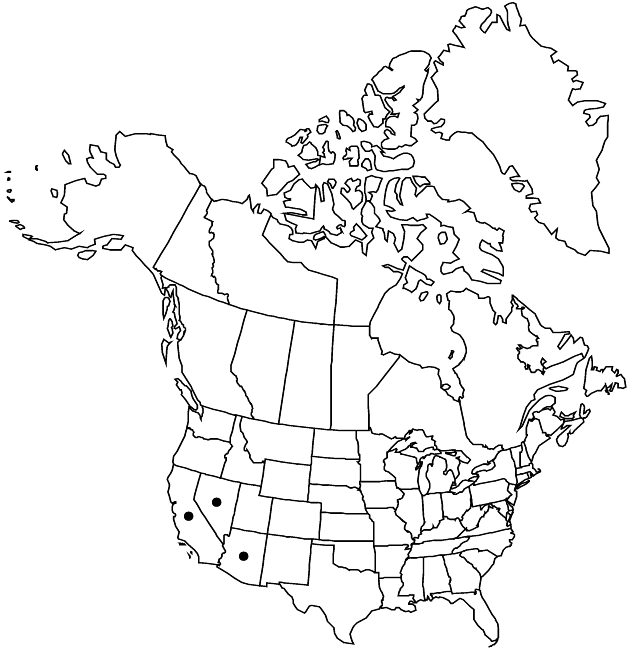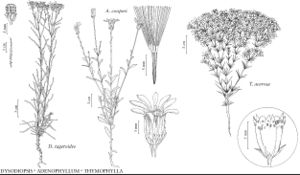Adenophyllum cooperi
Sida 11: 376. 1986.
IllustratedEndemic
Basionym: Dyssodia cooperi A. Gray Proc. Amer. Acad. Arts 9: 201. 1874
Treatment appears in FNA Volume 21. Treatment on page 239.
Perennials or subshrubs, 30–50+ cm. Leaves mostly not lobed, blades oblanceolate to ovate, 8–25 × 4–8 mm (bases sometimes toothed or obscurely lobed, oil-glands 1–2 pairs near base, 1 near tip, each leaf). Peduncles 60–150 mm. Calyculi of 12–22 linear-attenuate, gland-bearing, bractlets 5–8 mm. Involucres campanulate to obconic, 15–18 mm. Phyllaries ca. 20, lanceolate to linear, separating in fruit. Ray florets (0–)7–13; corollas yellow-orange, becoming red-orange; tubes 5 mm, laminae 8–10 × 2.5–4 mm. Disc florets 50–80+; corollas yellow, 8–10 mm. Cypselae 5–7 mm; pappi of 15–20 scales 7–10 mm, each comprising 5–9, basally connate bristles. 2n = 26.
Phenology: Flowering spring–fall.
Habitat: Sandy and gravelly soils of washes and alluvial fans in deserts
Elevation: 0–1300 m
Distribution
Loading map...

Ariz., Calif., Nev.
Discussion
Selected References
None.
Lower Taxa
None.
